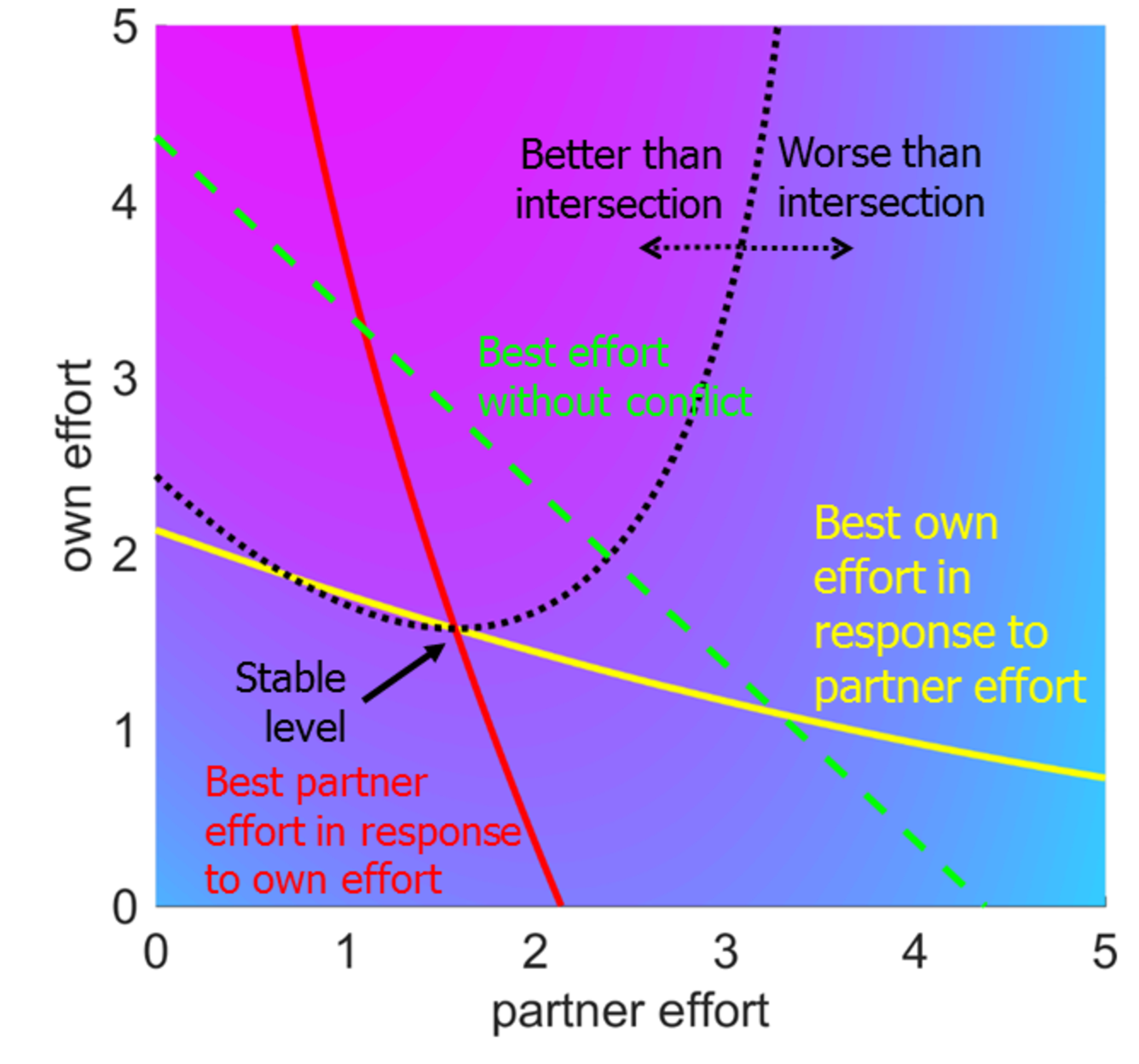Parents should negotiate over how much effort to put into raising their shared offspring
Background
In many species, such as most birds, individuals work together in caring for dependent offspring. The two parents are usually unrelated, so are not naturally selected to help one another directly. We might expect each parent to try to get the other to do more of the work, since they could then save their effort for other things, such as future offspring. We might expect conflict over parenting, especially if the parents do not stay together once the offspring become independent (e.g. fledge), so they don’t care about the fitness of the other parent. The consequences of this conflict for parenting can be understand by a mathematical model.
Findings
In the model, we assume that the fitness of offspring increase with the total amount of effort by both parents, with diminishing returns because offspring can only get so big. The cost to each parent only depends on their own effort. We can predict their best effort whatever the effort of their partner is (yellow solid line) and it declines, as if their partner puts in more effort they can put in less. However, the partner does the same thing (red solid line). Where the lines cross is where the interaction will end up, with equal effort. If the partners were more concerned with one another’s fitness, they mutually agree to put in more effort (green dashed line).
Implications
The model predicts a reduction in effort with the increasing effort of the partner, which can be seen in experiments with real birds. As predicted birds also assess the effort that potential partners put in. The model also predicts that birds which mate for life would not exploit each other. This is because their fitness is more tied together.
Subject
Behavioural ecology
Subject Group
Zoology and Ecology
Keywords
parental care
central place
trade offs
cooperation game


